
Award-winning author Nancy Kilpatrick has published 22 novels, over 220 short stories, seven story collections, and has edited 15 anthologies, plus graphic novels and one non- fiction book, The goth Bible: A Compendium for the Darkly Inclined (St. Martin’s Press).
fiction book, The goth Bible: A Compendium for the Darkly Inclined (St. Martin’s Press).
Nancy is an honest and passionate writer. We spoke of inspiration, classic horror, and vampires.
NTK: Welcome to Chilling Chat, Nancy! Thank you for joining me today.
NK: It’s my pleasure, Naching! Thank you for inviting me.
NTK: How old were you when you first discovered horror?
NK: I was a kid. We had the Saturday Night Chiller-type movies on but they were late and although it was Saturday night, I wasn’t allowed to stay up for those except on rare occasions. Horror films were my favorites and that just continued when I got old enough to watch those films. But before that, when I was in grade school (not sure of my age but likely around 6 or 7) the school visited the big library in downtown Philadelphia, where I lived, and we were each allowed to take one book out. I choose The Little Witch, which says I lot, I guess. Little did I know how famous that book was, in print for 40 years. So, my love of horror goes way back.
NTK: Who are the authors who’ve influenced you most?
NK: In horror, I tend not to mention living authors. I know way too many writers and I don’t want to offend anyone or leave anyone out. And frankly, it’s many dead authors that shaped me. Poe, Lovecraft, Carter, Jackson, Kafka, Shelley, Stoker, Byron, Bloch…even then, there are more than I’ve named. I see myself as shaped and influenced by every book I’ve ever read, even the terrible ones, and in every genre, both fiction and non-fiction. I’m kind of a lit vampire, meaning, I drink in experiences, so besides general life experiences, books and film have played a big role in who I am as a writer and likely who I am as a person.
NTK: Do you find inspiration in the books you’ve read? Where do you find inspiration?
NK: Inspiration is everywhere. I can see something, smell something, a twig on a peculiar taste, hear a sound and so on. I can have a dream and have written two stories from dreams. I daydream a lot. Many avenues lead to a story idea but the ones that lead to actually writing down those ideas in short story or novel form, those are the exceptional ideas. It’s hard to say what inspires them. One avenue for me is that I own and have read thousands of vampire novels and short fiction so I know what has been done and that always leads me to what has not been done before and how that fits into my personal view of the vampire. To a lesser extent, that works with ghosts and zombies for me, werewolves a bit less. If it’s “reality” horror, for example, nothing supernatural, more like a serial killer, there’s plenty of info on those types of killers around and that can inspire a thought. But thoughts have to connect to feeling for me because I’m essentially an emotional writer.
To keep it simple: I’m inspired when a thought or a feeling becomes a spark.
NTK: How did “Root Cellar” come about?
NK: I lived on a farm for almost a year, 10 miles outside the small town. The house was in exchange for “fixing it up.” It was bought by a well-off Judge who didn’t want to live there but it needed repair so a few friends and I went and painted and sanded and such. When we first arrived, we explored the house. The attic was a crawl space with a peaked roof and slats on the floor. We found some creepy things there, including the coffin and the cards I put into that story. The house was also, as in the story, the “old” part and the “new” part, with all the pickled things in the stairwell down to the basement.
“Root Cellar” was originally a literary story, a story of incest. I had a phase where I tried to force myself to write ‘lit’ fiction. That didn’t last long, though I published a bit. But, I could never get over the idea that lit fic had lost its way in terms of plot. Which is one reason I love horror, because plot is still crucial and that means a story to me. Anyway, I submitted “Root Cellar” to a major newspaper that was having a short fiction contest (yes, that was exceptional!) I was the first runner up and the story was published. As I was reading it in the paper, it struck me how that story was really a vampire story so I rewrote it and published it and it’s been published several times, been in a Best-of antho, up for two awards and so on. Really, it was crucial to see that in print and recognize that what I was trying to force myself to do was not right for me. Generally, I’m pretty aware of when I’m trying to go the “wrong” way because I think it’s the “right” way, and it’s not.
 NTK: You’ve written a series called Thrones of Blood. How are your vampires different from others?
NTK: You’ve written a series called Thrones of Blood. How are your vampires different from others?
NK: Because I’ve read so much vampire material and seen so many movies, and because I’ve written erotica (mainly a series of seven pastiche novels based on horror classics: Dracula; Frankenstein, Jekyll/Hyde, etc. etc.) and because I’ve seen and read erotic vampire novels and movies and wanted to infuse a series with that but not just that, I started thinking about a new series. I began writing these books about 12 or 13 or more years ago, because the idea churned for a few years before I started writing. One year in the winter I was staying alone in Florida for a month and cranked out book one and some of book two and three. Of course, all that had to be revised. I was just having fun and threw in a lot of genres and kitchen sink and had to clean up all the mess and stick to the story. There are other books, of course, with warring vampires and humans but I wanted to show the vampires as somewhat more evolved, while still violent, and that the humans might be even more violent. Ultimately, I wanted to show that because of a long life, the vampires, which are as resistant to change as humans, do have a longer perspective and can alter, at least a little. I wanted all this to come through in each book amidst the violence, the sex, the treachery, betrayals, viciousness, traitorous acts and even love and kindness where least expected.
I have not seen what I’ve done. And frankly, readers need to be a bit smart to read these books because I work with paradox a lot in my writing. It’s awfully hard to hold two opposites at the same time and that’s kind of what I hope readers will do. I also like to shift allegiances a lot. That’s kind of real life too for thoughtful people.
NTK: Do your characters have free will? Or do you plan their every move?
NK: I usually have a kind of plot overview for novels but rarely do a chapter by chapter outline. At the same time, as I write, I kind of know where I’m going. That doesn’t mean the characters want to go there and more times than not they insist on me paying attention to them. As I said, I’m an emotional writer so I have to respect my feelings and if it feels dull, wrong, just a big NO, then it won’t work for me and I have wait until something comes to me as to how to proceed. And as with all creative endeavors, one can go this way and that, both ways pretty obvious. But waiting often leads to a third way that wasn’t envisioned and that’s much better and leads to something much better. So no, I plan a bit, but I’m open to change. If I wasn’t, my characters wouldn’t work with me! (Laughs.)
What I mean by “this way and that” is that in every story, based on the conflict, there are usually two obvious resolutions of that conflict. If you go to either, the reader (who is as smart as the writer) feels bored and cheated because both resolutions are too obvious. This is where a creative solution has to make an appearance.
NTK: What makes good erotica?
NK: I was on an erotic-horror panel once with about eight or nine women and they ranged in age from youngest to oldest. At the oldest end were Nancy Holder and me. Someone asked if we writers were aroused when we wrote erotic-horror. Invariably from the younger end, there were definite and resounding “NO’s” all along and when it got to Nancy Holder, she said, kind of, maybe a little, yes. Then me, who said, “Of course I am aroused! If I can’t feel it, I can’t write it!” (Nancy H., by the way, thought I was so brave to say that, but I didn’t see myself as brave, more just honest because if I can feel the emotion of what I’m writing, I can make it believable for the reader—and that goes for the unsavory emotions too. There’s a huge difference in feeling murderous, which almost everyone has felt at some point, and committing murder. Knowing and feeling the difference is what keeps us all from acting horrifically in a spontaneous, or even a thought-out, moment.)
My seven erotic novels are The Darker Passions: Dracula; Frankenstein, Dr. Jekyll & Mr. Hyde, The Picture of Dorian Gray, The Fall of the House of Usher, Carmilla, and The Pit and the Pendulum.
NTK: What is your favorite horror movie?
NK: There are soooo many. I’d just be listing them. I’ll say a few. Daughters of Darkness (stylish). The Exorcist (the original, so scary). [REC] (an adrenalin rush for sure!) All of Romero’s zombie movies, especially Night of and Dawn of the Living Dead. 30 Days of Night (great concept and a horrific vampire gang). 28 Days Later (I like fast-moving zombies). Martin (another Romero, this one vampire). And I loved the original The Last Man on Earth with Vincent Price, a black and white based on Richard Matheson’s wonderful novel. That, of the three films based on the novel, was very creepy. Train to Busan (from South Korea, a great zombie movie, human, touching. It’s in subtitles. I’ve seen it three times.) It Stains the Sands Red (Wow, what a surprising zombie film. Two coke heads from LA, car stalled in the desert en route to see people, and a zombie comes and does guy in. The woman, seemingly a coke-head, has to “run” from the zombie but they are in the desert. It shifts and is so amazing. I was really blown away by this movie.)
You see, there are so many more I could name. Give me a minute and I can name 100 or more!
NTK: Do you have a favorite horror TV show?
NK: I liked the original Dark Shadows, and even the remake with Ben Cross. Forever Knight was fun. True Blood was incredible. (Kudos to Harris for allowing the adaptation.) There’s a great book called Vampire TV which is incredibly thick and surprisingly stuffed with TV shows of vampires alone. I also liked the old Twilight Zone, Kolchak, those kinds of X Files TV shows. Again, many more than I can name.
NTK: What’s your favorite horror novel?
NK: Again, I can’t name books by living authors so I’ll have to go with early works. And in fact, there’s little horror I’ve read or seen that I haven’t liked, even the bad stuff, because I can see merit in just about everything, sometimes just a drop of merit, but still. So that would Dracula by Stoker, Frankenstein by Mary Shelly, The Picture of Dorian Grey, all of Poe’s work, Robert Louis Stevenson’s work, even the ponderous Varney the Vampire or, The Feast of Blood which predates Dracula by a few decades. There are all sorts of wonderful novels out there and I encourage people to find and read some of what has been done in the past because, for example, the vampire did not start with Anne Rice’s books or Buffy. You’d be surprised by some of the beautiful and intense work that came  before.
before.
NTK: Nancy, what does the future hold for you? What works do we have to look forward to?
NK: At the moment, I’m working on book five in the Thrones of Blood series: Anguish of the Sapiens Queen. Book six is next up and that should be the end of the series, published in 2020. I also have a science fiction novel just about finished. The former will be out later this year and that latter…no date yet. I’m likely reissuing my horror (non-vampire) collection Cold Comfort. And I am in discussion for a new antho I’ll co-edit. This year I’ll be traveling to a few summer/fall events: Fan Expo in Toronto, and Word on the Street. Possibly Frightmare in the Falls. Early next year I’ll be at Stokercon in England.
By the way, if anyone wants to join my newsletter, which is short and once a month via email, they can go to my website: nancykilpatrick.com. The form to join is at the top.
NTK: Thank you so much for joining me today. It was an honor to interview you.
NK: Thank you, Naching, for having me.
Addicts, you can find Nancy on Facebook, Twitter, and Instagram.

 Horror Writer Contest winner, Jonathan Fortin.
Horror Writer Contest winner, Jonathan Fortin. Jonathan Fortin is the author of Lilitu: The Memoirs of a Succubus (coming December 2019 from Crystal Lake Publishing) and Nightmarescape (Mocha Memoirs Press). An unashamed lover of spooky Gothic stories, Jonathan was named the “Next Great Horror Writer” in 2017 by HorrorAddicts.net. He attended the Clarion Writing Program in 2012, one year after graduating summa cum laude from San Francisco State University’s Creative Writing program. When not writing, Jonathan enjoys voice acting, dressing like a Victorian gentleman, and indulging in all things odd and macabre in the San Francisco Bay Area. You can follow him on Twitter.
Jonathan Fortin is the author of Lilitu: The Memoirs of a Succubus (coming December 2019 from Crystal Lake Publishing) and Nightmarescape (Mocha Memoirs Press). An unashamed lover of spooky Gothic stories, Jonathan was named the “Next Great Horror Writer” in 2017 by HorrorAddicts.net. He attended the Clarion Writing Program in 2012, one year after graduating summa cum laude from San Francisco State University’s Creative Writing program. When not writing, Jonathan enjoys voice acting, dressing like a Victorian gentleman, and indulging in all things odd and macabre in the San Francisco Bay Area. You can follow him on Twitter.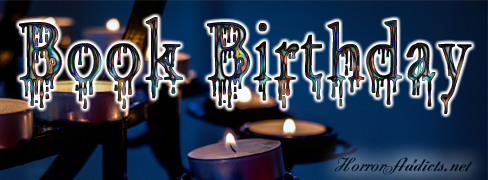
 Trevor’s return from the zombie infection makes him unique. It also makes him dangerous.
Trevor’s return from the zombie infection makes him unique. It also makes him dangerous.
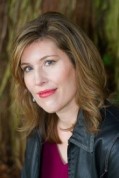

 Gothic stories, Jonathan was named the Next Great Horror Writer in 2017 by HorrorAddicts.net. He attended the Clarion Writing Program in 2012, one year after graduating summa cum laude from San Francisco State University’s Creative Writing program. When not writing, Jonathan enjoys voice acting, dressing like a Victorian gentleman, and indulging in all things odd and macabre in the San Francisco Bay Area.
Gothic stories, Jonathan was named the Next Great Horror Writer in 2017 by HorrorAddicts.net. He attended the Clarion Writing Program in 2012, one year after graduating summa cum laude from San Francisco State University’s Creative Writing program. When not writing, Jonathan enjoys voice acting, dressing like a Victorian gentleman, and indulging in all things odd and macabre in the San Francisco Bay Area.




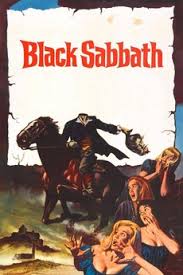 Here we go. Organized by year:
Here we go. Organized by year: evil cultists by driving…angrily…in 3D. While being pursued by a demon accountant…who is also, yes, in 3D. There’s also a sex scene gunfight…which is, you guessed it, also in 3D.
evil cultists by driving…angrily…in 3D. While being pursued by a demon accountant…who is also, yes, in 3D. There’s also a sex scene gunfight…which is, you guessed it, also in 3D. Jonathan Fortin is the author of
Jonathan Fortin is the author of  Bones and Ashes, The Book of the Unwinding, The Final Days of Magic), and the standalone Southern Gothic horror tale Shivaree. A world traveler and student of French and Russian literature, Horn also has an MBA in international business and formerly held a career as a financial analyst before turning his talent to crafting chilling stories and unforgettable characters. His novels have received global attention and have been translated into Turkish, Russian, Romanian, Polish, Italian, German, and French. Originally from Tennessee, he currently lives in California with his spouse, Rich, and their rescue Chihuahua, Kirby Seamus.
Bones and Ashes, The Book of the Unwinding, The Final Days of Magic), and the standalone Southern Gothic horror tale Shivaree. A world traveler and student of French and Russian literature, Horn also has an MBA in international business and formerly held a career as a financial analyst before turning his talent to crafting chilling stories and unforgettable characters. His novels have received global attention and have been translated into Turkish, Russian, Romanian, Polish, Italian, German, and French. Originally from Tennessee, he currently lives in California with his spouse, Rich, and their rescue Chihuahua, Kirby Seamus. NTK: Your style is reminiscent of these authors, especially what I’ve seen in Shivaree. What inspired Shivaree and what inspires you in general?
NTK: Your style is reminiscent of these authors, especially what I’ve seen in Shivaree. What inspired Shivaree and what inspires you in general? look forward to?
look forward to?
 you create a weapon to combat the hoards? What if you became infected with the plague? What would you do if you lived in the Plague Master Universe?
you create a weapon to combat the hoards? What if you became infected with the plague? What would you do if you lived in the Plague Master Universe? Award Finalist.
Award Finalist. After I have those, I plug them in to a chapter framework and start filling in around them. I used to do it in Word, but I’ve found the Scrivener is especially good for that. However, I usually end up pulling it back out as I get the story more filled in. Then I work in Word again.
After I have those, I plug them in to a chapter framework and start filling in around them. I used to do it in Word, but I’ve found the Scrivener is especially good for that. However, I usually end up pulling it back out as I get the story more filled in. Then I work in Word again. I have to write the third and final one. I’ve had the series finale in mind for a long time, so I’m thrilled to finally write it.
I have to write the third and final one. I’ve had the series finale in mind for a long time, so I’m thrilled to finally write it. you create a weapon to combat the hoards? What if you became infected with the plague? What would you do if you lived in the Plague Master Universe?
you create a weapon to combat the hoards? What if you became infected with the plague? What would you do if you lived in the Plague Master Universe?
 you create a weapon to combat the hoards? What if you became infected with the plague? What would you do if you lived in the Plague Master Universe?
you create a weapon to combat the hoards? What if you became infected with the plague? What would you do if you lived in the Plague Master Universe? Relationship with Cemeteries, and Morbid Curiosity Cures the Blues: True Tales of the Unsavory, Unwise, Unorthodox, and Unusual. Her short stories have appeared in the books Best New Horror #27, Strange California, Sins of the Sirens: Fourteen Tales of Dark Desire, Fright Mare: Women Write Horror, and most recently in the magazines Weirdbook, Occult Detective Quarterly, and Space & Time.
Relationship with Cemeteries, and Morbid Curiosity Cures the Blues: True Tales of the Unsavory, Unwise, Unorthodox, and Unusual. Her short stories have appeared in the books Best New Horror #27, Strange California, Sins of the Sirens: Fourteen Tales of Dark Desire, Fright Mare: Women Write Horror, and most recently in the magazines Weirdbook, Occult Detective Quarterly, and Space & Time.  The local chapter of the Horror Writers Association decided to help the survivors. Ben Monroe suggested we put together an anthology that we could use to raise money for survivors. I volunteered to edit. Tomes & Coffee volunteered to publish it. All the stories—even the one by Clark Ashton Smith—are donations. The cover art was donated by Petersen Games. Even the cover designer donated her time.
The local chapter of the Horror Writers Association decided to help the survivors. Ben Monroe suggested we put together an anthology that we could use to raise money for survivors. I volunteered to edit. Tomes & Coffee volunteered to publish it. All the stories—even the one by Clark Ashton Smith—are donations. The cover art was donated by Petersen Games. Even the cover designer donated her time. Horror Addicts table at Sinister Creature Con. It’s the sequel to Lost Angels (which HA gave a super nice review to several years ago). This new one is called Angelus Rose. It continues the story of Lorelei, a succubus who falls for an angel named Azaziel. It’s set in LA—and bits of it take place in Forest Lawn, Westwood Memorial Park (where Marilyn Monroe is buried), and Angelus Rosedale, where Buffy was filmed in its first season. The story skates between erotic horror and urban fantasy romance, lots of sex and death and graveyards.
Horror Addicts table at Sinister Creature Con. It’s the sequel to Lost Angels (which HA gave a super nice review to several years ago). This new one is called Angelus Rose. It continues the story of Lorelei, a succubus who falls for an angel named Azaziel. It’s set in LA—and bits of it take place in Forest Lawn, Westwood Memorial Park (where Marilyn Monroe is buried), and Angelus Rosedale, where Buffy was filmed in its first season. The story skates between erotic horror and urban fantasy romance, lots of sex and death and graveyards. fiction book, The goth Bible: A Compendium for the Darkly Inclined (St. Martin’s Press).
fiction book, The goth Bible: A Compendium for the Darkly Inclined (St. Martin’s Press).  NTK: You’ve written a series called Thrones of Blood. How are your vampires different from others?
NTK: You’ve written a series called Thrones of Blood. How are your vampires different from others? before.
before.

 science and exercise physiology. When he is not studying, he plays guitar or explores California by bicycle. “REMS” is his first short story.
science and exercise physiology. When he is not studying, he plays guitar or explores California by bicycle. “REMS” is his first short story. 7.) What is your favorite horror novel?
7.) What is your favorite horror novel?
 about my stories, but when I actually write, I prefer instrumental music. Two Steps from Hell is a personal favorite.
about my stories, but when I actually write, I prefer instrumental music. Two Steps from Hell is a personal favorite.
 agents and publishers later this year.
agents and publishers later this year.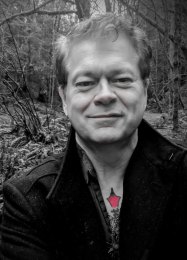 anthologies. Garth is also the founder of the International Edgar Allan Poe Society. He lives in Canada on Vancouver Island.
anthologies. Garth is also the founder of the International Edgar Allan Poe Society. He lives in Canada on Vancouver Island.  8.) Favorite horror movie?
8.) Favorite horror movie?
 Favorite horror movie by far is Army of Darkness, followed closely by Alien and Aliens.
Favorite horror movie by far is Army of Darkness, followed closely by Alien and Aliens.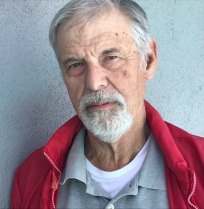 His novel To Die, To Sleep was published by James Ward Kirk.
His novel To Die, To Sleep was published by James Ward Kirk.  The Haunting, the original black and white. Saw it on the night I graduated from junior high.
The Haunting, the original black and white. Saw it on the night I graduated from junior high. North, Clockwork Canada, and Chillers from the Rock, amongst others. Outside of Canada, she has published more than fifty stories.
North, Clockwork Canada, and Chillers from the Rock, amongst others. Outside of Canada, she has published more than fifty stories. 8.) Favorite horror movie?
8.) Favorite horror movie? alternate 19th Century California. Laurel’s published short stories total over thirty. She’s a Literary Stage Manager, speaker, anthology editor, and writing contest judge.
alternate 19th Century California. Laurel’s published short stories total over thirty. She’s a Literary Stage Manager, speaker, anthology editor, and writing contest judge.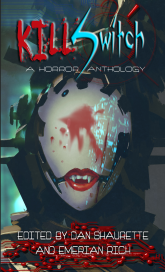 9.) Favorite horror television show?
9.) Favorite horror television show?

 8.) Favorite horror movie?
8.) Favorite horror movie?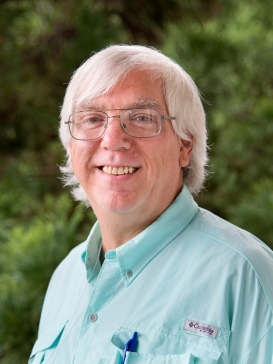 (including works on folklore, the occult, mythology, magic, and religion.) Dr. Leinweber is also a lifelong guitarist and pianist whose music has been featured in numerous venues, ranging from festivals and clubs to television, radio, theaters, and art galleries.
(including works on folklore, the occult, mythology, magic, and religion.) Dr. Leinweber is also a lifelong guitarist and pianist whose music has been featured in numerous venues, ranging from festivals and clubs to television, radio, theaters, and art galleries. DL: Great question. I certainly think one could point to the classic psychological themes, like the fear of death, or subliminal sexual desires. I also think that a good vampire story often has a folklore quality to it, and evokes a sense of being bound in time. I sometimes think the classic elements of the Dracula tale don’t appear as much in vampire stories of the present-day when so many film studios want to update the classic elements. Call it cliche if you want, but some of the classic horror tropes were very powerful and we should try to transmit them to the next generation.
DL: Great question. I certainly think one could point to the classic psychological themes, like the fear of death, or subliminal sexual desires. I also think that a good vampire story often has a folklore quality to it, and evokes a sense of being bound in time. I sometimes think the classic elements of the Dracula tale don’t appear as much in vampire stories of the present-day when so many film studios want to update the classic elements. Call it cliche if you want, but some of the classic horror tropes were very powerful and we should try to transmit them to the next generation. I’d even love to have it turned into a film. But first and foremost, it’s a theatrical production. I’m still working on finding the right theater to debut the show, but hopefully soon. I also enjoy writing ghost songs and am compiling a list of ghost songs to release as a song cycle. My song “Daphne,” about the Kate Jackson character Daphne Harridge on Dark Shadows, remains my favorite song and it was the ghost song I wrote that got me the most inspired along these musical and storytelling lines. Kate Jackson loves the song, which was encouraging.
I’d even love to have it turned into a film. But first and foremost, it’s a theatrical production. I’m still working on finding the right theater to debut the show, but hopefully soon. I also enjoy writing ghost songs and am compiling a list of ghost songs to release as a song cycle. My song “Daphne,” about the Kate Jackson character Daphne Harridge on Dark Shadows, remains my favorite song and it was the ghost song I wrote that got me the most inspired along these musical and storytelling lines. Kate Jackson loves the song, which was encouraging. Issues 2 & 3, Third Flatiron’s Strange Beasties, and Tales to Terrify. Her debut collection, Something Borrowed, Something Blood-Soaked, is available now from Unnerving, and won the 2018 Indie Horror Book Award for Best Debut Collection.
Issues 2 & 3, Third Flatiron’s Strange Beasties, and Tales to Terrify. Her debut collection, Something Borrowed, Something Blood-Soaked, is available now from Unnerving, and won the 2018 Indie Horror Book Award for Best Debut Collection. NTK: Where do your characters come from? Do they have free will? Or do you direct their actions?
NTK: Where do your characters come from? Do they have free will? Or do you direct their actions? piece of flash fiction entitled “Shadows” in Issue 4 of Outpost 28, planned for July or August of this year, and a reprint of a story called “Three Cheers for Sweet Revenge” to air on The Wicked Library podcast (the story originally appeared in Issue 2 of Outpost 28) There have been a few delays in publication, but I have two stories coming out with Chilling Tales for Dark Nights, “Shark Minute” and “What Are Little Girls Made Of?”, the first as part of a Scary Stories to Tell in the Dark tribute anthology, the second on The Simply Scary Podcast Network. I’ll have a story appearing in a middle-grade graphic anthology coming out in October of 2019, and I have two other stories coming out in unannounced anthologies, later in the year. My nonfiction essay, “A Ghost is a Wish Your Heart Makes,” will be published in a scholarly anthology of articles on Netflix’s The Haunting of Hill House series. I also have a story, “And Sweetest in the Gale is Heard” appearing in the Not All Monsters anthology, edited by Sara Tantlinger and to be released by Strange House Books in the fall of 2020.
piece of flash fiction entitled “Shadows” in Issue 4 of Outpost 28, planned for July or August of this year, and a reprint of a story called “Three Cheers for Sweet Revenge” to air on The Wicked Library podcast (the story originally appeared in Issue 2 of Outpost 28) There have been a few delays in publication, but I have two stories coming out with Chilling Tales for Dark Nights, “Shark Minute” and “What Are Little Girls Made Of?”, the first as part of a Scary Stories to Tell in the Dark tribute anthology, the second on The Simply Scary Podcast Network. I’ll have a story appearing in a middle-grade graphic anthology coming out in October of 2019, and I have two other stories coming out in unannounced anthologies, later in the year. My nonfiction essay, “A Ghost is a Wish Your Heart Makes,” will be published in a scholarly anthology of articles on Netflix’s The Haunting of Hill House series. I also have a story, “And Sweetest in the Gale is Heard” appearing in the Not All Monsters anthology, edited by Sara Tantlinger and to be released by Strange House Books in the fall of 2020. everywhere. When she’s not writing, she can be found binge-watching the latest horror film alone in the dark.
everywhere. When she’s not writing, she can be found binge-watching the latest horror film alone in the dark. This is a tough one! I would probably say Bram Stoker’s Dracula, but that’s on a masterpiece classic level. For my favorite villain, Nightmare on Elm Street. For something that’s a fun watch, I’d choose Hereditary, Drag Me to Hell, or Hellraiser.
This is a tough one! I would probably say Bram Stoker’s Dracula, but that’s on a masterpiece classic level. For my favorite villain, Nightmare on Elm Street. For something that’s a fun watch, I’d choose Hereditary, Drag Me to Hell, or Hellraiser.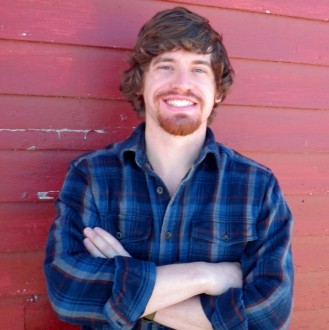 short fiction has appeared in various places including Hinnom Magazine, Beneath the Waves: Tales From the Deep, and Horror Tales Podcast. Timothy is an active member of the Horror Writers Association.
short fiction has appeared in various places including Hinnom Magazine, Beneath the Waves: Tales From the Deep, and Horror Tales Podcast. Timothy is an active member of the Horror Writers Association. OK, maybe I’ll disappoint some people with this because there’s a lot of really better polished and very popular horror TV shows that have been made since then, but I really love The X Files, which wasn’t always horror but did have plenty of monsters.
OK, maybe I’ll disappoint some people with this because there’s a lot of really better polished and very popular horror TV shows that have been made since then, but I really love The X Files, which wasn’t always horror but did have plenty of monsters. at work or school, she’s enjoying a nice book or stressful video game in the company of her many feline friends.
at work or school, she’s enjoying a nice book or stressful video game in the company of her many feline friends.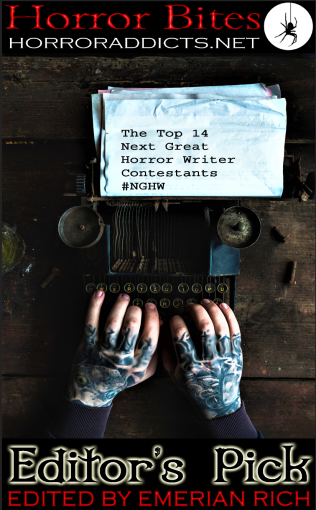 The Haunting of Hill House, hands down.
The Haunting of Hill House, hands down. massage therapy. She loves reading horror and dabbles from time to time in poetry.
massage therapy. She loves reading horror and dabbles from time to time in poetry. 8.) Favorite horror movie?
8.) Favorite horror movie? stories appearing in seven anthologies with several more to be published in 2019, and is currently editing his debut novel.
stories appearing in seven anthologies with several more to be published in 2019, and is currently editing his debut novel. The truth is VERY MUCH! In fact, people may get sick of seeing my name this year. As of today, I’ve had one anthology released,
The truth is VERY MUCH! In fact, people may get sick of seeing my name this year. As of today, I’ve had one anthology released,  heartbeat when you’re home alone and the floorboards creak upstairs.
heartbeat when you’re home alone and the floorboards creak upstairs. 7) What is your favourite horror novel?
7) What is your favourite horror novel?
 7) What is your favorite horror novel?
7) What is your favorite horror novel?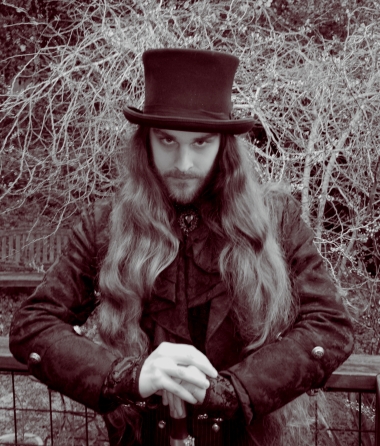 forthcoming release from Crystal Lake Publishing.
forthcoming release from Crystal Lake Publishing.  7) What is your favorite horror novel?
7) What is your favorite horror novel?






